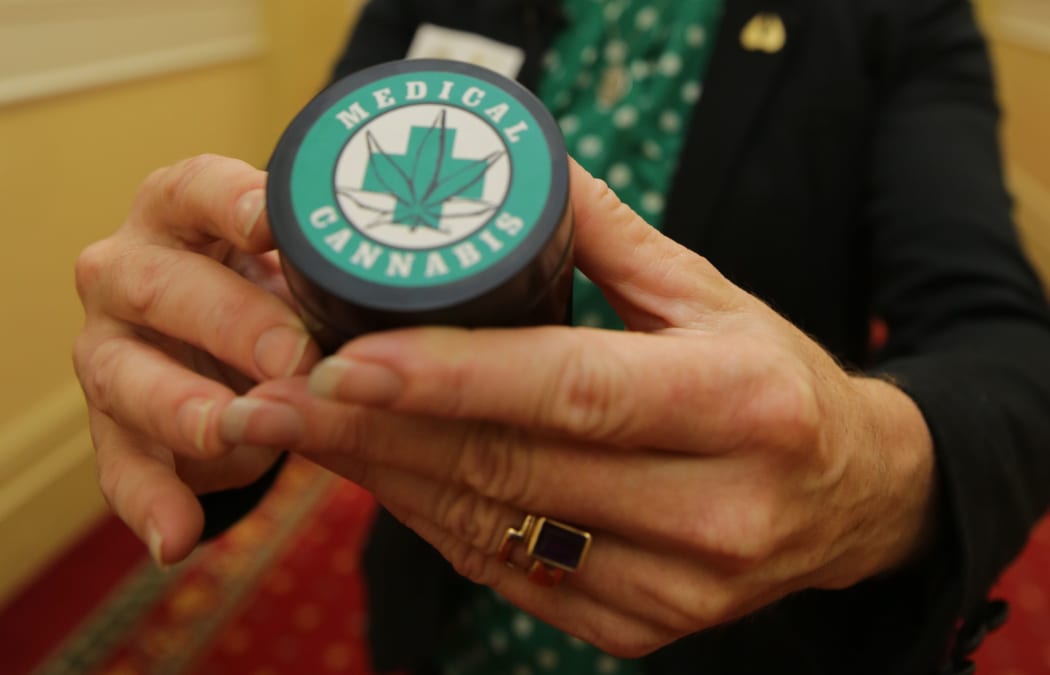
Medicinal cannabis balm: Demand for medical cannabis use appears to be growing. Photo: RNZ/Hans Weston
Sometimes when Cara* is waiting for her carer to return from the tinny house, her mind begins to wander.
What's happened to them? Why are they taking longer then usual? Are they banged up, frightened, at the local cop shop?
She worries that this time their luck has run out, as they delve inexpertly into the world of drugs and gangs to get her medicine: cannabis.
Cara suffers from the autoimmune disease lupus and complications from a stroke.
She gets around in an electric wheelchair, which she manoeuvres with her shaky, twisted and swollen hands. The cannabis, which she takes as a capsule of oil or baked into cookies, steadies them and her nerves and frees her from pain.
Cara gave up on the strong opiate-based pain medicines she had been prescribed over the years in favour of medical cannabis because, she said, the other drugs were wearing down her already fragile body.
Tori Catherwood said her mother, Dawn, who is dying of breast cancer, shared similar anxiety when she took illegally sourced cannabis. She now had access to the pharmaceutical-grade cannabis-based drug Sativex after getting approval to use it from the Ministry of Health.
But, before that, it was a nerve-racking time for the otherwise law-abiding woman.
"As soon as there's a knock on the door, if we don't know who it is, it does stress her out - and it's stress that could be easily avoided".
She said, prior to taking the legal cannabis medicine, which cost about $1000 per month, her mother took the illegal version.
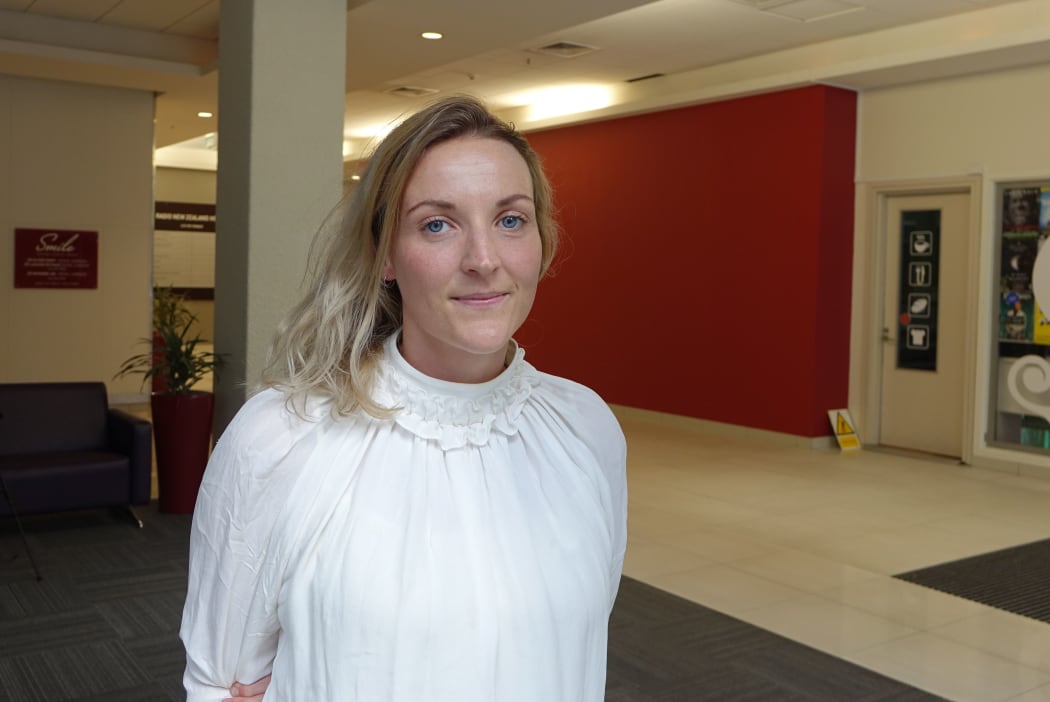
Tori Catherwood Photo: RNZ/Teresa Cowie
Ms Catherwood, eyes brimming with tears, explained how her mother had to keep it a secret from her own husband because he was a lawyer, and having illegal activity in the house was completely off limits for him.
"He didn't know, and it was something she did without anybody else's knowledge. He was against it, because it's illegal, but if it was legal he would be all for it."
Both women said they felt those living with a terminal illness should not have to spend their final days keeping secrets from their families, or worrying about getting in trouble with the law.
They wanted a compassionate user access scheme, where patients could get signed off by their doctor as terminally ill and then register to be given immunity from police action if they were caught using cannabis for medicinal reasons.
Following its inquiry into the Misuse of Drugs Act in 2011, the Law Commission also recommended a compassionate use scheme be set up, so that people suffering from a chronic or debilitating illness could be authorised to use raw cannabis under medical supervision and without legal consequences.
It said a scheme would be particularly important for patients for whom conventional treatment had not worked.
In Australia, the New South Wales government has established a Medicinal Cannabis Compassionate Use Scheme, where patients who have been certified by a doctor as terminally ill can be put on a register that would give them protection against being raided or arrested.
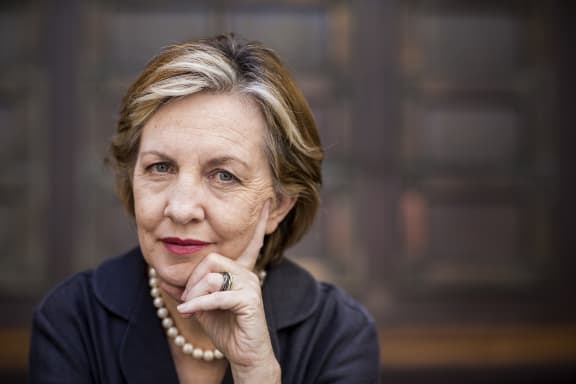
Professor Mary O'Kane Photo: SUPPLIED
The New South Wales Chief Scientist, Professor Mary O'Kane, is undertaking a review of the scheme. In the two and a half years it has been up and running, 300 people have registered, she said.
"[When it comes to] things that give people relief, to people who are dying, I think very few people would refuse to agree with appropriate schemes that do no harm to anyone else."
Prof O'Kane said, while the scheme was not perfect, it was very useful to have in the toolbox until more robust scientific evidence about medical cannabis use was available.
"There's always the problem with it that it doesn't guarantee supply or show a legal route through to supply, so it's not the answer to everything."
The scheme provided clear guidelines for New South Wales police officers, to help them determine the correct circumstances in which to use their discretion, she said.
Prof O'Kane stressed it was a stop-gap measure, and said the state was determined any further liberalising of cannabis use would follow a "medical model" in which patients would get access to high-level and properly tested products.
But she said, in the meantime, it felt those who were in need had to be shown compassion.
Ms Catherwood said a system like that needed to be adopted here for people like her mother.
"These patients are dying and letting them have access to something that makes them feel better is a human right."
But she would want to see any such scheme extended to also include non-terminally-ill patients.
"Chronically ill people should have access too, because [they] are also sick and they have their own illnesses that they are dealing with. Just because someone is dying doesn't mean we should only give them access. We should look at sick people as a whole and say 'are we providing to people everything we can, to make their lives as good as possible'."
Cara said, for her, a compassionate use scheme would make a huge difference, because getting in trouble with police was a constant worry.
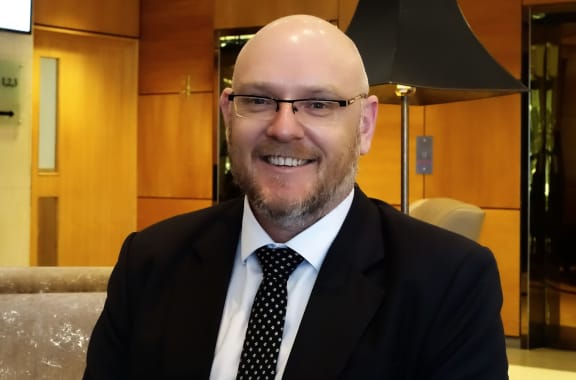
Ross Bell Photo: RNZ Insight/Teresa Cowie
"It would be awesome, I wouldn't have to be looking over my shoulder all the time, and I could go and see my doctor, because they would have compassion, and I don't go to doctors anymore [because I can't tell them about my cannabis use]."
New Zealand Drug Foundation Executive Director Ross Bell said, while compassion should be extended to sick and dying patients, the New South Wales scheme had a number of snags.
He believed asking people to register their illegal activity would not work.
"We've heard from people 'we don't want to be on that list' because [it looks like] some sneaky way for the cops to prosecute."
Under the Australian scheme, patients are not allowed to grow their own plants and usually have to rely on the black market for supply.
Mr Bell said sending patients and their carers off into the criminal world for their supply was far from ideal
"This is the biggest weakness of the scheme, they still have to go to the criminal black market. This can only be a stop-gap measure."
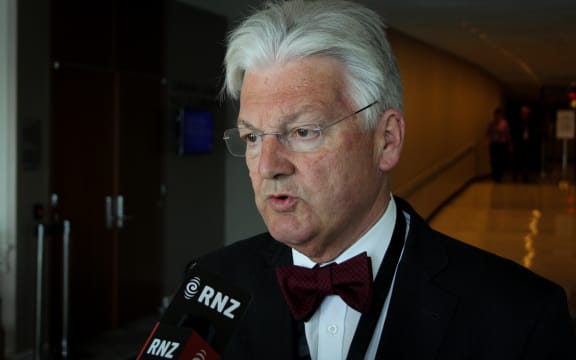
Peter Dunne Photo: RNZ / Alexander Robertson
Associate Health Minister Peter Dunne said it was unlikely New Zealand would follow New South Wales in having a specific compassionate use scheme because, while the schemes could give patients some reassurance, there were a lot of difficulties around them.
"They are not all they seem. There are real problems getting people onto registers. There are issues about people who are supplying, claiming when they are arrested that they are supplying for various people on the register."
For now, Mr Dunne said he believed the current system, where police officers used their individual discretion to decide what to do in situations where medicinal use was claimed, was working.
However, he thought having specific national guidelines on policing medical cannabis could be worth looking at.
*Not her real name


